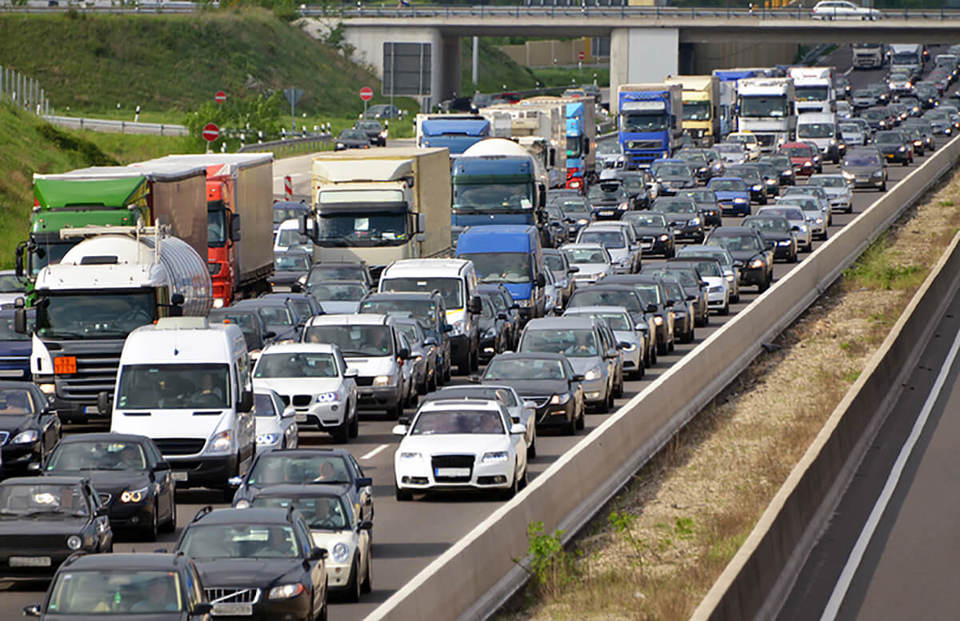The Government has announced delays to some major road building projects, including the Lower Thames Crossing, in an effort to control costs.
Committing to spending £40 billion on infrastructure projects over the next two years – a record amount – the transport secretary, Mark Harper, however, also announced that inflationary pressures required a ‘refocussing’ of efforts.
“We have seen headwinds from inflation, triggered by the impact of Putin's illegal war in Ukraine, as well as supply chain disruption as the global economy recovers from the effects of Covid-19.
“These headwinds have made it difficult to deliver on our capital programmes, and we recognise that some schemes are going to take longer than expected,” said Harper in a written statement to the House of Commons.
The Government said it has had to take “tough decisions” on what can be achieved within original timeframes.
The Lower Thames Crossing,which has already cost £800 million to date, will be pushed back by two years, says DfT, so it can prepare an “effective and deliverable plan”, while dealing with the inflationary pressures the project is facing.
It added that the A27 Arundel Bypass and A5036 Port of Liverpool Access in the Roads Investment Strategy (RIS) 2 both face a range of challenges so will be developed in RIS 3 (covering 2025-2030).
The schemes earmarked for RIS 3 (2025-30) will continue to be developed and considered for inclusion within RIS 4, which will run from 2030-2035, it said.
Given many of these schemes were previously expected towards the end of RIS 3, ministers suggested that this extra time will help ensure better planned and efficient schemes can be deployed more effectively.
Kate Jennings, director of policy at Logistics UK, said: “We recognise the inflationary pressures that have brought about these delays, however it is essential to maintain momentum on delivery and avoid a stop start investment, which reduces business certainty, adds cost to projects and brings economic costs in terms of reduced efficiency of the network.”
She added: “Ambitious infrastructure projects are vital for unlocking economic growth across the country.
"When delivered, they will mean more capacity on our transport network, fewer inefficient delays from congestion and more opportunities for modal shift, enabling a cut in carbon emissions.”
Delays to HS2
The DfT says that £8bn of the £40bn committed over the next two financial years will be allocated to road building, with some of the remainder being invested in delivering HS2, which has been beset by delays and cost rises.
In 2010, it was expected to cost £33bn but is now expected to be £71bn.
With more than £20bn spent on phase one already, the Government says it will prioritise delivering the opening stage of HS2, with the first high-speed rail services running between new stations at Old Oak Common in west London and Curzon Street in Birmingham by the early 2030s.
However, due to inflationary pressures, the Birmingham to Crewe leg of high speed railway HS2 will be delayed by two years to cut costs.
The Government suggested Euston station's opening could also be delayed as an "affordable" design is worked on.
Harper said he was "committed" to the line linking London, the Midlands and North of England.
But he added: “We can’t ignore the current realities. Putin’s war in Ukraine has hiked up inflation, sending supply chain costs rocketing.”
Once operational, HS2 has the potential to release capacity on the existing network for up to 144 extra freight trains per day.
“With rail traditionally ‘greener’ than other transport modes, and each freight train able to do the job of 77 HGV’s, maximising the capacity for modal shift to rail is vital for meeting decarbonisation targets," explained Jennings from Logistics UK.
“Delays to the planned road upgrades, to the A27 at Arundel and A5036 in Liverpool, are disappointing, both from the disruption which logistics operators will continue to experience and the delays which local residents will continue to suffer.”
The A27 is a major route for trade along the south coast to Portsmouth and Southampton, while the A5036 provides vital access to the Port of Liverpool.
“Logistics businesses need assurance that these projects will be delivered,” continued Jennings. “That is why Logistics UK is calling for a 30-year infrastructure plan to optimise the national freight network, which underpins UK economic growth and productivity every day.”























Login to comment
Comments
No comments have been made yet.